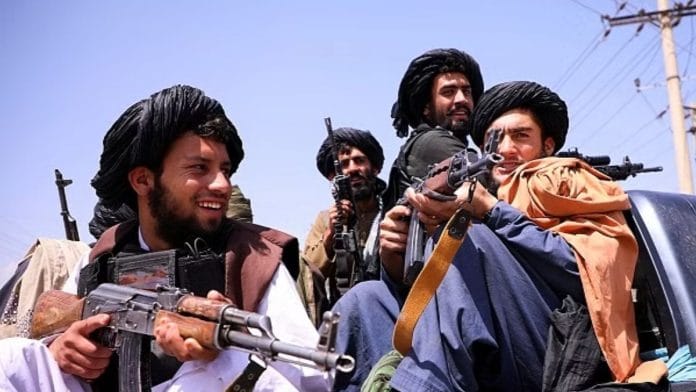New Delhi: Cross-border fighting with Afghanistan has divided Pakistanis. Upset at their former ally’s violent attacks, many of them are viewing Taliban-run Afghanistan as a source of betrayal and instability. Kabul’s failure to curb the operations of Tehrik-e-Taliban Pakistan, a militant group that has frequently undermined Islamabad’s internal security, is one big reason for this sentiment.
The latest escalations follow Pakistan’s airstrikes on TTP hideouts in Afghanistan, in retaliation to a 21 December attack on Khyber Pakhtunkhwa’s South Waziristan district, which killed 16 Pakistani soldiers. Pakistan claimed the strikes targeted TTP fighters, whereas the Taliban government accused Islamabad of killing at least 46 civilians including women and children. The Taliban claims to have targeted several points near the contested Durand Line border, in response to Pakistan’s violence.
@CherieDamour_complained that Afghanistan is okay with US attacks but gets angry when Pakistan retaliates.
“Many afghan nationalist accounts here, who’ve been relentlessly complaining about the Taliban rule, to the US (asking for the American interference) are mad about Pakistan fighting with the Taliban. For them, the only entity allowed to attack Afghanistan is the US. They supported the US drones killing Afghan civilians.. but spreading propaganda about Pakistan, who are but defending themselves from Afghan soil based terrorism,” she wrote.
@PakiSwift, along similar lines, said: “300 Innocent Afghan Refugees were gunned down on the Iranian border by the Iranian Border forces and the Taliban had nothing to say. Somehow when it comes to Pakistan however they will start jumping like monkeys when Pakistan responds to cross border terror that originates there.”
Meanwhile, another X user acknowledged Pakistan’s role in the current fiasco: “Pakistan funded the Taliban in Afghanistan with full western knowledge, but the Taliban got too powerful and nationalistic for them to control and now they’re seeing the consequences. You ultimately reap what you sow.”
Taliban-Pakistan relations
Journalist and political analyst Sami Yousafzai, who has extensively covered the region, argued that, despite the rhetoric of retaliation and war, both countries will likely avoid full-scale conflict as neither side can afford the consequences.
“Pakistan has a powerful military, including nuclear capabilities, but the Taliban have leverage through asymmetric tactics like suicide bombings, and groups like the TTP and Baloch separatists can contribute to instability across the border. This makes direct confrontation dangerous, as both sides are capable of inflicting harm, but neither can afford a full-scale war,” he told ThePrint.
The Taliban, on the other hand, doesn’t really have a “political understanding”. The first Taliban regime collapsed due to al-Qaeda and now TTP is creating trouble for them. Yousafzai noted that a major issue for the Taliban is their popularity in Afghanistan, where anti-Pakistan sentiments run deep. The Afghan public views Pakistan as a meddler, and the Taliban, though once aligned with Pakistan, now face significant domestic pressure.
“This is the repeat of history. Pakistan’s problem is that they are very absolutely happy to have a Taliba-type regime in Afghanistan – one without any recognition or international representation, like a marginalised and isolated regime,” Yousafzai added.
Politics and dividing lines
At the core of this conflict is the issue of Pashtun nationalism and the contentious Durand Line, which divides Pashtun communities between Pakistan and Afghanistan. Pakistan has long been accused of using the Taliban to address the Pashtunistan issue—an ongoing dispute over Pashtun-majority areas straddling both countries. However, as the Taliban’s nationalism intensifies, this strategy has backfired.
The Taliban, once seen as a buffer against Pashtun separatism, now advocate for Pashtun unity, which undermines Pakistan’s territorial integrity and interests. This has placed Pakistan in a difficult position, as the very group it supported to maintain influence over Afghanistan is now complicating its regional strategy.
Analysts are unsure of what lies ahead.
“Afghanistan under the Taliban is not a typical regime; it’s an abnormal one,” Yousafzai stressed. While Pakistan is a stable and powerful country with a strong military and significant international influence, it must exercise caution, he added.
“Pakistan bears more responsibility than the Afghan Taliban, as the Taliban operates like undisciplined, naughty children. They are unpredictable and dangerous, and Pakistan needs to be wary of them.”







Indeed. The Taliban is a naughty child. It neither listens to it’s mother (Pakistan) nor to it’s father (USA).